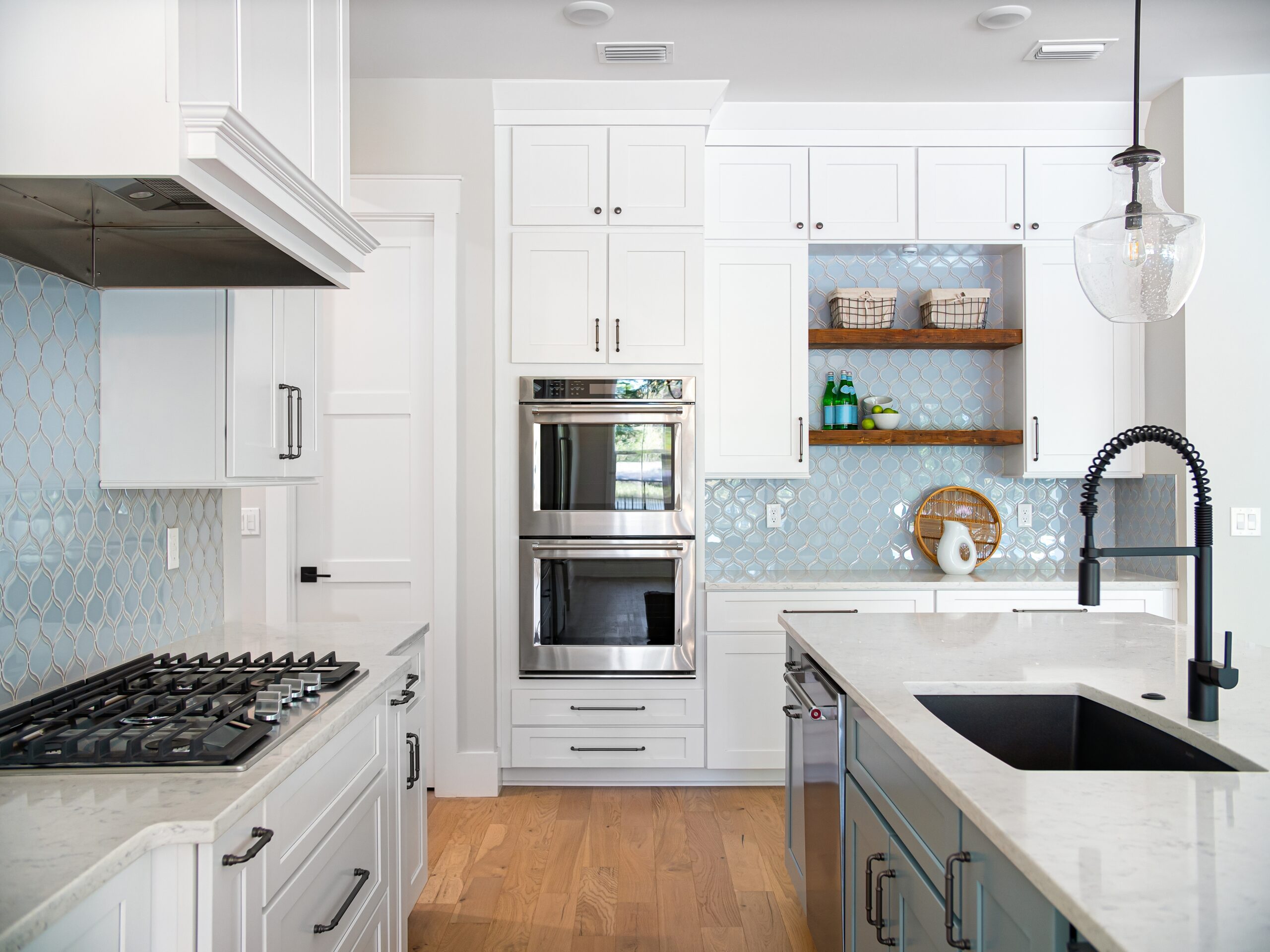How to Start a Home Search: Define Realistic Goals for Your Next Home
One of the common mistakes we see home buyers make is starting their home search before they’ve taken the time to make some decisions on what they really want in a home. They will go to open houses on a whim, browse online real estate websites, and start daydreaming. Beginning a home search in this haphazard way is often the path to disappointment–and can occasionally lead to buying a home that’s not really what you wanted at a higher price than you should have paid. See 6 Common Real Estate Mistakes to avoid when you start a home search.
At Agents for Home Buyers, we offer our clients a structured process for home searches that has worked well for our clients for over 25 years. We call it the “focused home search,” and it begins with a process we call “locating yourself in the market”.
Locating Yourself in the Market
Whether it takes you two days or two years to find a home, the home search process involves two stages. The first step to start a home search is locating yourself in the market. Once you’ve done that, then you can begin the focused home search. The location stage requires some significant soul searching and sometimes a reality check.
Where Do We Want to Be?
Often, the primary issue involved in “locating yourself in the market” is deciding on the physical location of the home. Even if there are no financial restraints, there will be questions regarding commuting distance, schools for the kids, or the neighborhood where you want to live. Is a shorter commute worth being in a “lesser” school district? Would the commute from Boulder to your job in Denver be worth it to live near the Pearl Street Mall? Would it make more sense to find something located midway instead? What happens if you change jobs in a few years?
What Are My Must Haves?
For most of us, financial concerns necessarily complicate the physical location issues. Residing in the city of Boulder might mean living in a 1,000 square foot, 1960s ranch with no garage. Would you settle for a 10-minute drive to Boulder if you could buy a newer 1,600 square foot home with a 2-car garage? Would you consider a 25-minute commute if you could get a 1,900 square foot home, a finished basement and a 3-car garage?
Or, perhaps your monthly payment is your primary concern. Would you consider a 10-minute commute if you could get the 1,000 square foot ranch for 20% less than you’d pay in Boulder? How about a 25-minute commute for a 60% discount over the Boulder price?
Identifying your real, personal requirements for a home is important. You’ll need to carefully consider what you care about most in a new home.
What Are the Trade-offs?
As you begin your home search, you will face a series of these kinds of decisions. They are often difficult, and sometimes agonizing, as you may be required to make a variety of trade-offs.
Is square footage more important to you than commute time? Is your children’s education, or the social/cultural environment you’ll live in paramount? What about the physical beauty of your surroundings? If you are married or have a partner, you may discover that the two of you fundamentally disagree. What happens when you must sacrifice the Boulder address for a 2-car garage — because he or she insists?
Where Do I Draw the Line?
The specific issues that arise and how the trade-offs are weighed varies widely from one home buyer to the next. Inevitably though, these types of decisions are just a part of the process. For most people, those decisions are rarely easy or trivial. Because our personal values and goals guide these decisions, our housing choices reflect how we think of ourselves and our partners. Whether we’d like to admit it or not, most of us have an identity we want to project. Consequently, our housing choices need to project that identity. Would you be embarrassed to have your parents or friends visit the smaller home you can afford in Boulder? Would you feel comfortable inviting members of your rock band to your brand new home in Erie? Working through these trade-offs with your partner can be a simultaneously disturbing and enlightening process.

Consider Trade-Offs Before You Start a Home Search
When you get serious about buying a home, you’ll likely tackle a series of trade-off decisions. They are often difficult, and sometimes agonizing. You’ll sort them out as you gather information from three areas of concern:
- Loan types and amounts you will qualify for. See more about how mortgage brokers can help here.
- How much you can afford, what you are willing to spend, and the type of home you would like to buy, like a single-family home vs. a townhome or condo.
- What types of homes are actually available (square footage, number of bedrooms, floors and layout), where they are located, and at what price?
Knowing What You Want
First-time home buyers often experience some speed bumps when they start a home search. Many begin shopping around with only a vague idea of what they can afford or what type of property they want to buy. They just want to quit renting and get into the housing market. When buyers match what types of loans they qualify for to the existing housing options, they can begin to understand the trade-off decisions they will need to make.
In contrast, a family being transferred for work from out of state may have already ironed out all of their loan issues. They may have clear criteria regarding the type of house, neighborhood and community they want. If their ideas match what actually exists in our market, these buyers could be ready for a “focused home search.” If not, they too can find themselves faced with some tough decisions.
Making Decisions
Tackling those trade-off decisions is made easier with:
- Good information on the realistic alternatives available in the housing market.
- Open minded thinking about the full range of lifestyle, financing, and housing alternatives.
- A willingness to abandon unrealistic goals.
- Good, honest communication among everyone involved. This includes communication between buyers, real estate agents and lenders, and also communication between spouses and partners as well.
Information = Time Saved
In many cases, good information can move things forward in dramatic ways. It’s not unusual for buyers to spend months looking for a home in a particular neighborhood before coming to Agents for Home Buyers. When we share our 20+ years of Boulder-area real estate statistics to show that nothing has sold in that area in their price range, they are freed up to consider other options. With facts in hand, buyers can make quick decisions about the neighborhoods or types of housing they are looking for.
Hope Renewed
We’ve also worked with people on the verge of giving up because they couldn’t find anything in their ideal neighborhood. Often, we can help folks find good, similar homes in other areas. Better yet, we may know of properties likely to come on the market in their ideal area in the near future.
Moving Forward
Ultimately, it’s easier to consider the alternatives or abandon unrealistic goals if you have good information in front of you. Gathering the right real estate statistics from our areas is just one of the important roles that good real estate buyer agents and loan officers play in this process.
Because we have have helped clients work through these decisions hundreds of times with our clients, we can help you too.
Sometimes we even facilitate communication between spouses or partners and help home buyers be more realistic with themselves.
The result of “locating yourself in the market,” whether it takes an afternoon, a week or a year, is to narrow your focus to certain types of housing in certain neighborhoods or communities.
Once you have completed this first step of locating yourself in the market, it’s time to begin the focused home search.
Next Steps in Buying a First-Time Home
Contact Agents for Home Buyers! Lindsey and Danielle can help you navigate the home buying process to find a great home you will love. It’s what we have been doing as buyers agents for 25 years in Boulder County, Jefferson County, Broomfield, Larimer County, and nearby.
Step 1: Educate Yourself About the Home Buying Process
Step 2: Form Your Team of Real Estate Professionals: Mortgage Lender and Buyer Agent
Step 3: Set Realistic Goals for Your Home Search
Step 4: Beware the MLS and Online Real Estate Databases
Step 5: Begin a Focused Home Search
Step 6: “The Sprint” of House Tours
Step 7: Craft Your Home Purchase Offer
Step 8: Negotiate the Contract
Step 9: Colorado Real Estate Documents and Forms
Step 10: Home Loans and Financing
Resources: Home Buyer Assistance Programs

